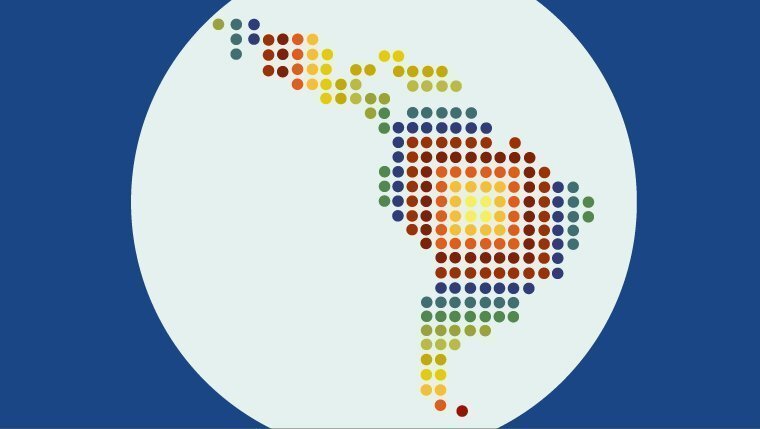
CALAS Press Release: Facing the Corona-Virus crisis in and from Latin America
CALAS_Símbolo_I
Foto: CALAS16.04.2020, Guadalajara
Without any doubt, due to the pandemic, the global system has entered a profound crisis that will unequivocally mark an era. Because of the varied and complex repercussions, this goes far beyond a health issue. Crises such as these are processes in which social, economic, cultural, and political constellations are shaken, broken, and transformed. It is because of this conviction that the Center for Advanced Latin American StudiesExterner Link, which was founded with the explicit purpose to study crisis management strategies in and from Latin America, sees it as our responsibility to face this new challenge and to critically accompany it.
Our approach departs from two basic observations: First, although at the beginning a pervasive discourse referred to the fact that the virus does not distinguish between social classes, gender, and color, we now see that the pandemic particularly affects the most vulnerable: the elderly, those with fragile health and with pre-existing diseases. However, we also recognize the local differences of the pandemic and the ways in which different regions are dealing with the virus. Second, it has already become a daily reality that national health systems are unable to absorb the floods of sick people who arrive at hospitals in critical conditions.
Emergency measures are temporarily restricted, based on circumstantial reactions, trying to buy time until a vaccine or effective treatment arrives. In the long run, it is necessary to move towards new social and economic configurations at the structural level, which effectively marks a before and after the pandemic. For this reason, we should concentrate our analytical expertise to enhance proposals on several issues:
- In order to be better prepared for future crises, it is crucial to dedicate sufficient resources to the common good. The aim must be to build a public structure that is as universal as possible, through massive investment in health infrastructure, as well as in preventive care, education, social protection, basic services, transportation, and the strengthening of urban and rural areas.
- This new approach will include a social and ecological transformation of the economy so that it also takes into account the impacts of climate change and the erratic practices of development policies that are based on the coloniality of power and the overexploitation of nature. Greater sustainability also requires the strengthening of small and medium businesses operating in local economies, as well as an equitable economic exchange between regions.
- In order to carry out these transformations, it is necessary for States to review and improve the financing of their budget. In Latin America's highly fragmented societies, fair tax practices must be implemented so that the wealthiest individuals and businesses in each country contribute their fair share to a more balanced public burden.
CALAS will accompany this transformation process. A first step will be to convene a research fellowshipExterner Link in order to carry out an initial assessment of the effects of the health crisis on the profound social inequalities in Latin America. We will also support, through publications and encounters, the international cooperation of researchers, aimed to systematize the analysis of experts on the regional impacts and the ways in which different actors with their particular points of view have faced this new crisis. We open our spaces to foster dialogue and exchange between different voices, both from academia, institutions, and civil society in general, in order to make progress in the implementation of measures aimed at addressing the crisis of Covid-19.
